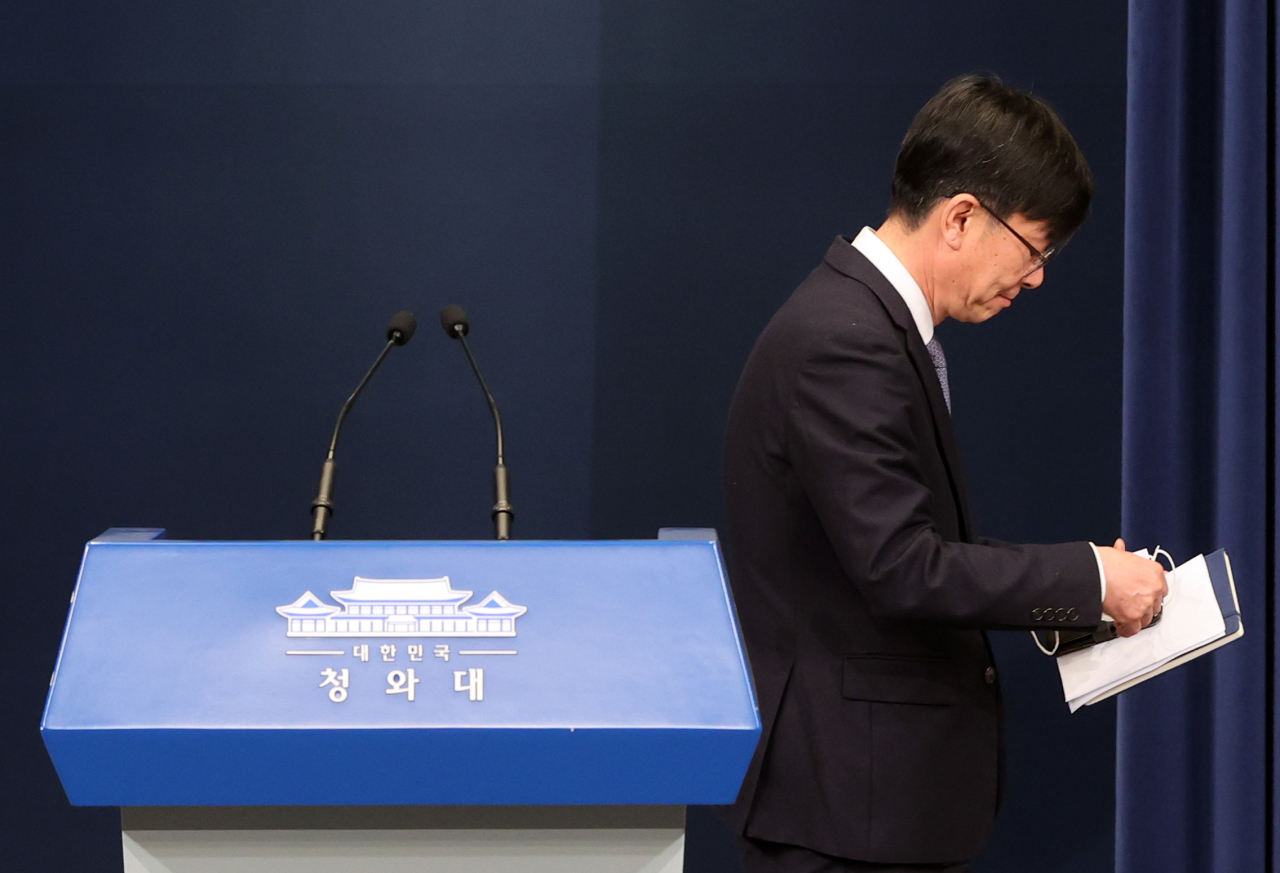President Moon Jae-in on Monday dismissed his chief of staff for policy Kim Sang-jo, who played a key role in implementing policies to better protect tenants’ rights but was recently found to have greatly raised the jeonse deposit for his Gangnam apartment days before the new laws took effect.
According to government filings, Kim raised the jeonse deposit 14 percent -- from 850 million won ($751,000) to 970 million won -- when he renewed a lease with a tenant July 29 last year. Two days later, he would have been limited to a 5 percent increase under the new tenant protection laws.
The jeonse property rental system is unique to South Korea, and involves tenants paying a large deposit instead of monthly rent. In most cases tenants and homeowners sign a two-year contract, with the homeowner paying back the principal upon completion of the contract.
Many Koreans view jeonse as a way to save on housing expenses before purchasing their own homes.
 |
Kim Sang-jo leaves after delivering a speech during a press briefing held at Cheong Wa Dae on Monday. (Yonhap) |
To ease the financial burdens facing tenants, the new jeonse legislation allows tenants to extend their two-year contracts for another two years, while landlords can raise jeonse deposits by up to 5 percent.
Even though the increase did not violate the law, the timing raised eyebrows in the face of public uproar over the government’s unpopular housing policy and the snowballing land speculation scandal involving officials from a state-run housing developer.
Kim said the jeonse increase was unavoidable because he had to pay a higher deposit for the home he was renting under the jeonse system. He didn’t elaborate on why he lived in a rented home, not in his own apartment.
“I apologize for disappointing the public at a time when the government should make all-out efforts to eradicate real estate speculation,” Kim told a press briefing at Cheong Wa Dae on Monday.
“I thought my prompt departure would help the presidential office carry out planned measures without delay.”
A senior Cheong Wa Dae official said Kim had offered his resignation earlier in the day and the president accepted it immediately.
His replacement is Lee Ho-seung, former senior presidential secretary for economic affairs, who served diverse positions at the Finance Ministry.
It was a humiliating departure for Kim, who was at the forefront of Moon’s economic reforms since the liberal government took power.
Moon, who took office in May 2017, named Kim, a former economics professor and renowned civic activist who led the nation’s minority shareholder movement, as head of the nation’s antitrust watchdog.
Dubbed the “chaebol sniper,” he pushed ahead with chaebol reform by urging big businesses to improve their governance structure and overall transparency.
Right after his three-year term ended, he joined Moon’s economic team as chief of staff for policy in June 2019 to oversee the government’s policy direction, including measures to ease the skyrocketing housing prices.
After toughened restrictions and heavier taxes on both buyers and sellers failed to contain the heated housing market, the government recently shifted its strategy toward expanding the supply of housing. But those plans have hit a snag as several employees with the Korea Land and Housing Corp. were found to have purchased large plots of land in redevelopment areas using insider knowledge.
By Lee Ji-yoon (
jylee@heraldcorp.com)








![[Today’s K-pop] Blackpink’s Jennie, Lisa invited to Coachella as solo acts](http://res.heraldm.com/phpwas/restmb_idxmake.php?idx=644&simg=/content/image/2024/11/21/20241121050099_0.jpg)